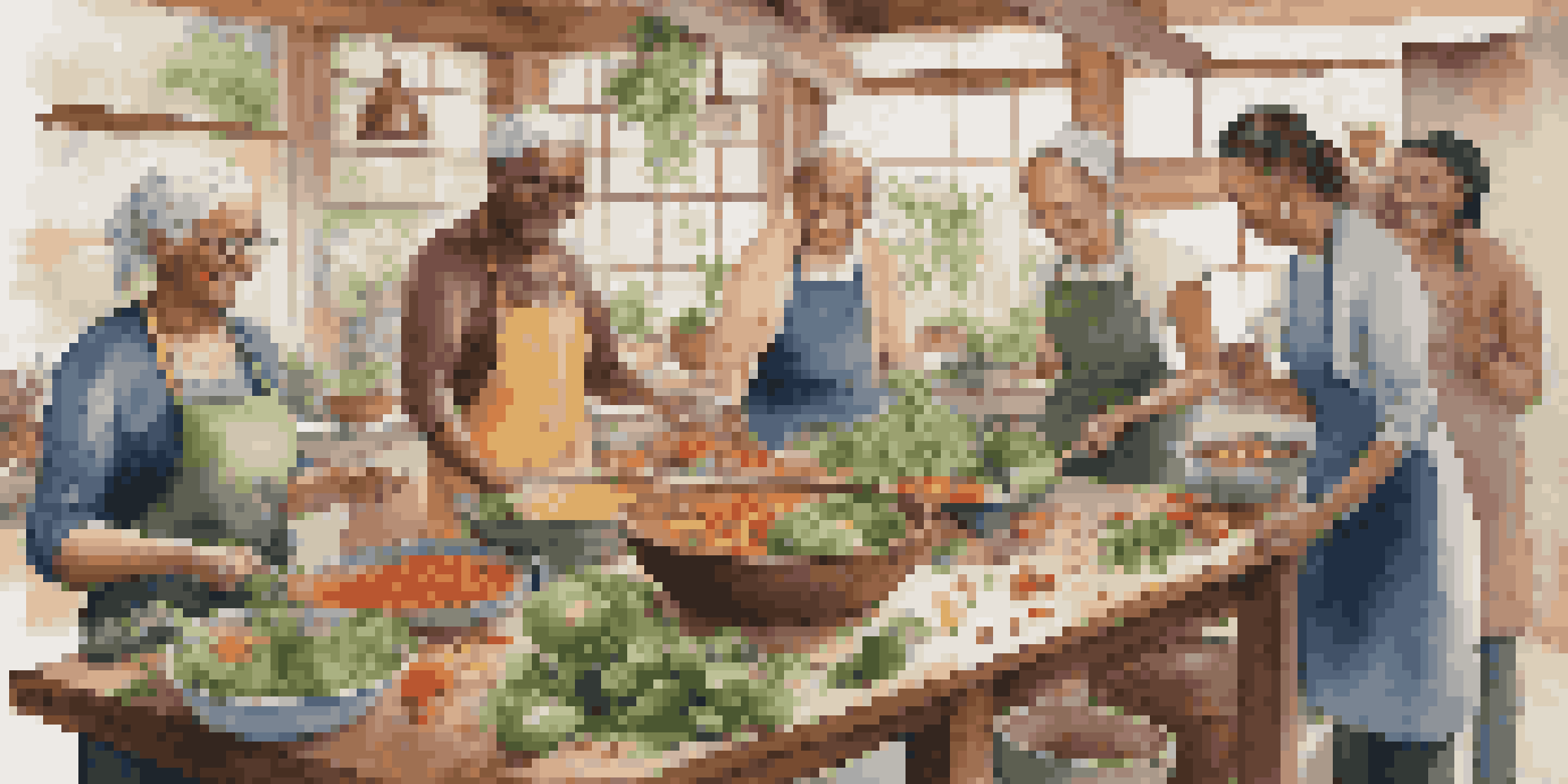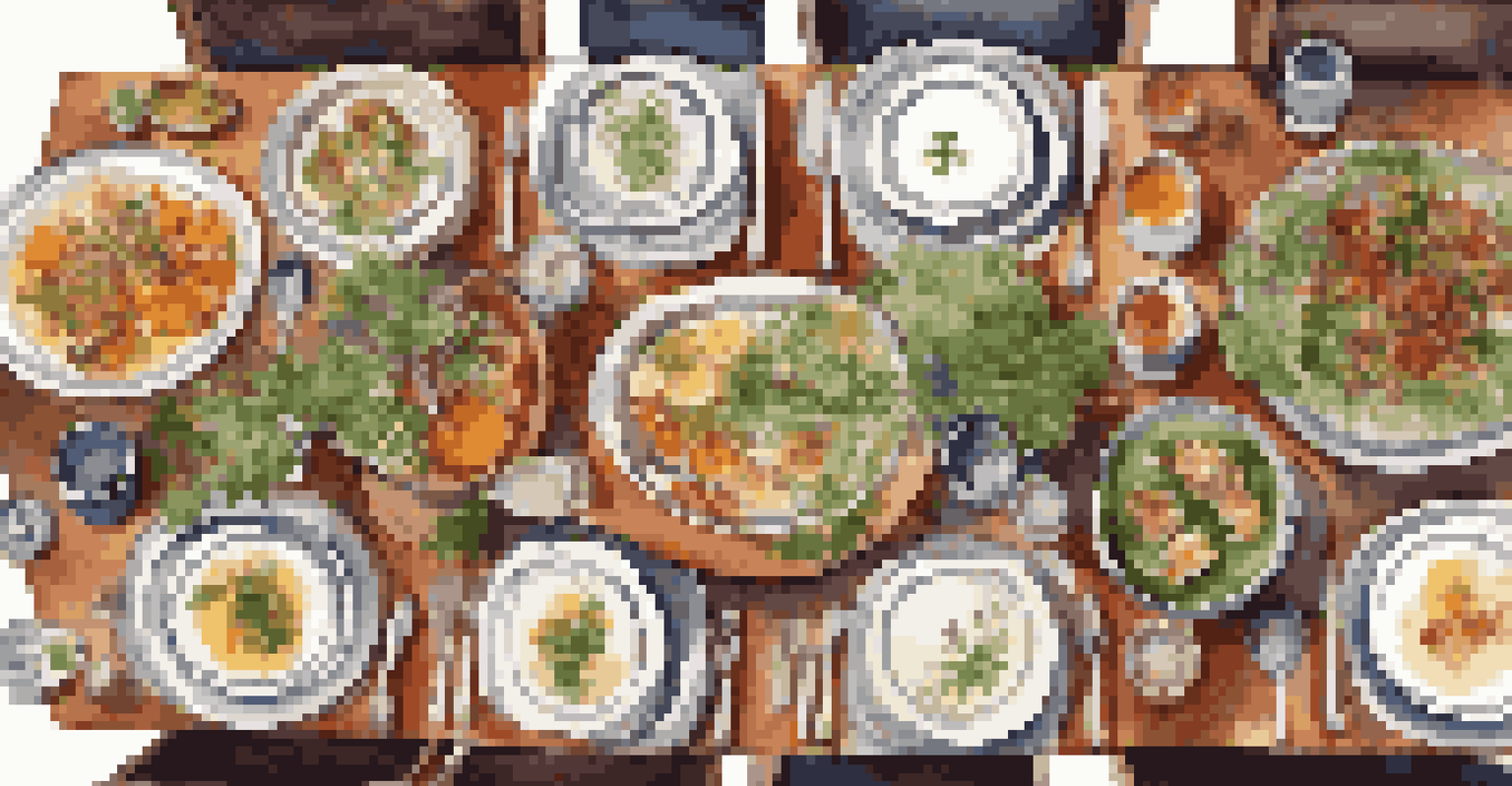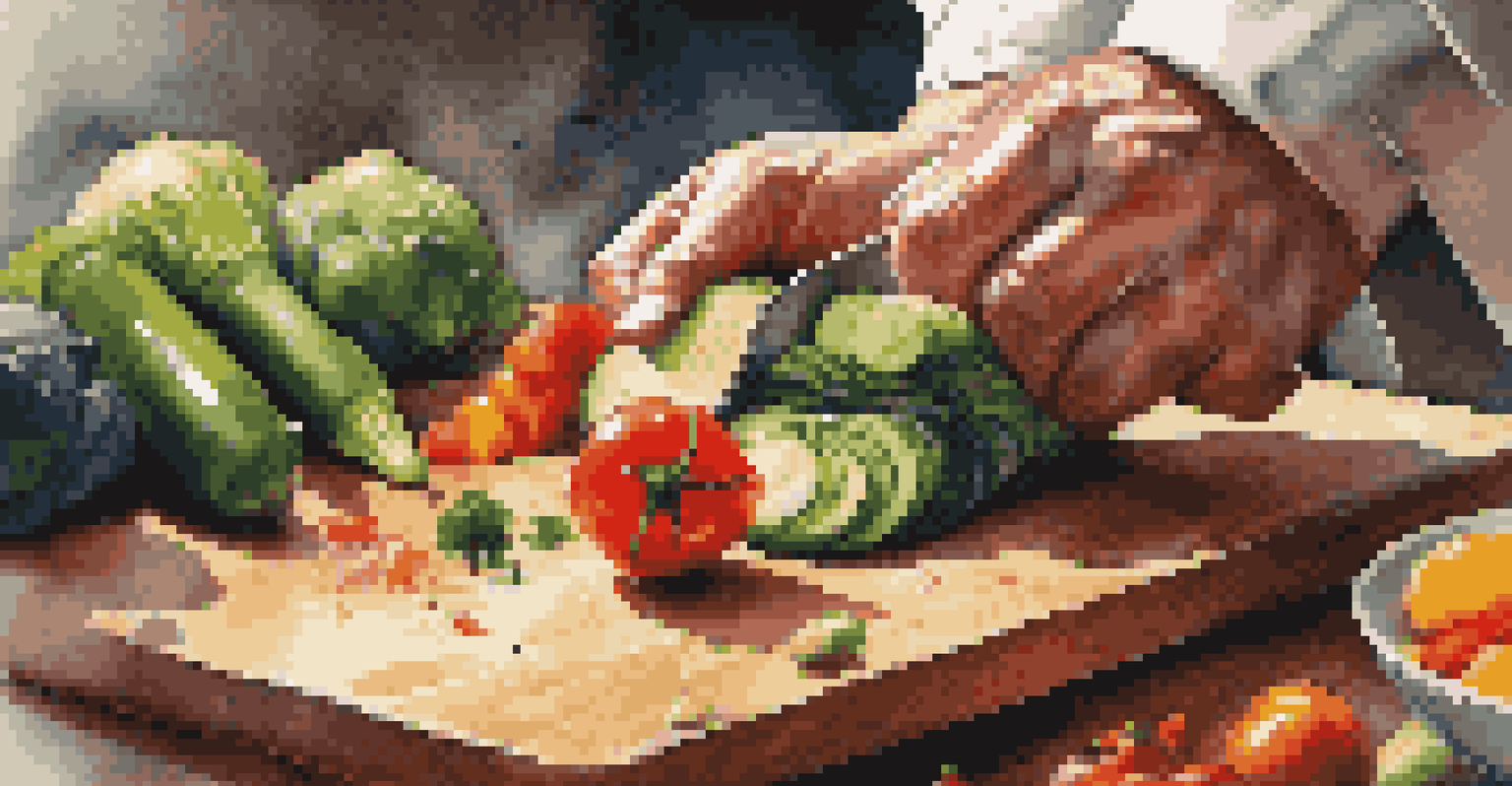Culinary Adventures: Hands-On Cooking Workshops for Health

Exploring the Benefits of Hands-On Cooking Workshops
Cooking workshops are not just about learning recipes; they offer a fun and interactive way to connect with food. These classes allow participants to explore various cuisines while gaining practical culinary skills. Plus, they emphasize the health benefits of fresh, whole ingredients, making the experience both educational and enjoyable.
Cooking is like love. It should be entered into with abandon or not at all.
Engaging in hands-on cooking helps reinforce the idea that food is fuel for our bodies. By preparing meals ourselves, we gain a deeper appreciation for nutrition and its impact on our health. This connection often leads to more mindful eating habits, which can contribute to overall well-being.
Moreover, these workshops foster a sense of community. Whether you’re cooking with friends or meeting new people, sharing the experience of preparing a meal together can create lasting bonds and memories that go beyond the kitchen.
Choosing the Right Cooking Workshop for You
With various cooking workshops available, it's essential to choose one that aligns with your interests and skill level. Consider what type of cuisine excites you—be it Italian, Thai, or plant-based cooking. This choice can significantly enhance your enjoyment and engagement during the class.

Also, think about the workshop format. Some classes focus on quick, healthy meals, while others dive into intricate techniques. Finding a workshop that matches your time commitment and culinary goals will make the experience more rewarding.
Lastly, don't overlook the instructor's expertise. A passionate and knowledgeable chef can inspire you to explore new culinary horizons and provide valuable insights that go beyond just cooking techniques.
Ingredients Matter: Emphasizing Fresh and Local Produce
One of the most exciting aspects of cooking workshops is the emphasis on using fresh, local ingredients. Not only do these ingredients taste better, but they also offer more nutrients. When you cook with seasonal produce, you not only support local farmers but also enjoy the flavors at their peak.
Food brings us together, it connects us, and it nourishes us—both body and soul.
Many workshops incorporate farm visits or partnerships with local markets, enriching the learning experience. Understanding where your food comes from can deepen your appreciation for the cooking process and encourage more sustainable eating habits.
Additionally, using fresh ingredients can inspire creativity in the kitchen. You might find yourself experimenting with flavors and dishes that you wouldn't normally consider, making cooking both an adventure and a joy.
Health Benefits of Cooking: More Than Just Nutrition
While the nutritional aspect of cooking is crucial, the health benefits extend beyond what’s on your plate. Engaging in cooking can serve as a form of therapy, providing a creative outlet that reduces stress and fosters mindfulness. The act of chopping vegetables, stirring a pot, or kneading dough can be meditative and calming.
Moreover, cooking at home allows you to control the ingredients and portion sizes, leading to healthier eating habits. You can experiment with reducing salt, sugar, and unhealthy fats, creating meals that are both delicious and nutritious.
Lastly, cooking can boost your confidence and self-esteem. As you master new techniques and discover new flavors, you may find yourself more willing to share your creations with family and friends, fostering a sense of pride in your culinary achievements.
The Social Aspect: Cooking Workshops as Community Events
Cooking workshops are a fantastic way to meet new people and build connections. Whether you're a seasoned chef or a beginner, the shared experience of cooking can break down barriers and create friendships. Many participants find that discussing food brings people together, regardless of their backgrounds.
These workshops often encourage collaboration, allowing participants to work in teams to prepare meals. This teamwork fosters communication and camaraderie, creating a supportive environment where everyone can learn from one another.
Furthermore, the communal aspect of sharing a meal after cooking enhances the experience. Sitting down together to enjoy the fruits of your labor can create a sense of belonging and satisfaction that extends beyond the kitchen.
Diversity in Culinary Workshops: Exploring Global Flavors
One of the most exciting aspects of cooking workshops is the opportunity to explore global cuisines. From learning how to roll sushi to mastering the art of French pastry, these classes can transport you to different cultures through food. This exploration can broaden your palate and introduce you to new ingredients and techniques.
Diversity in culinary workshops also encourages an appreciation for different cultures. Understanding the traditions and stories behind various dishes can deepen your connection to the food you prepare and enjoy. It’s a delicious way to celebrate cultural heritage and diversity.
Additionally, these workshops often inspire participants to incorporate global flavors into their everyday cooking. After exploring a new cuisine, you might find yourself experimenting with spices or cooking methods you’ve never tried before, enriching your culinary repertoire.
Tips for Making the Most Out of Your Cooking Workshop Experience
To truly benefit from a cooking workshop, come prepared with an open mind and a willingness to learn. Approach each session as an opportunity to expand your skills and knowledge. Remember, everyone is at a different level, so be supportive of your fellow participants.
Don’t hesitate to ask questions! Whether you're unsure about a technique or curious about ingredient substitutions, engaging with the instructor can enhance your learning experience. They’re there to help you grow and enjoy the process.

Finally, take notes! Jotting down tips and tricks during the workshop can help reinforce what you’ve learned and serve as a reference when you try to recreate the dishes at home. This way, you can continue your culinary adventure long after the class ends.